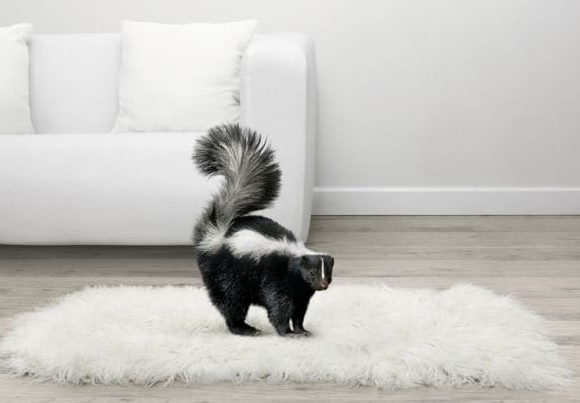Why Do Carpets Smell After Cleaning
Why Do Carpets Smell After Cleaning? Find Answers Here
My carpets smell! Have you ever wondered why your carpets sometimes emit an unpleasant odour after cleaning? The answer to this question is not as simple as a one-sentence explanation, as there can be various reasons behind the lingering smell. To shed some light on this matter, let’s take a closer look at your carpet cleaning experience and explore possible causes for the odour.
Deep Cleaning Your Carpets
When it comes to professional carpet cleaning, the cleaner must be aware of the specific type of fibres in your carpet. Alternatively, as a homeowner, you may already know this information, considering that your carpet was a significant investment for your house. Generally, carpets can be categorized into two main types: wool-based carpets and synthetic carpets.
Wool carpets, in particular, have unique properties that resemble those of dogs. When wet, wool carpets can emit a distinct sulfur-like smell, which is a natural characteristic of wool fibres. Although this odour is always present to some extent, moisture acts as a medium that enhances its detectability. Find out more about what is so great about wool.
Methods of Carpet Cleaning
When it comes to deep cleaning your carpets, there are primarily two methods commonly used: dry cleaning and hot water extraction (HWE). Dry cleaning is typically employed for regular maintenance of office carpets, while hot water extraction is considered the most effective method for deep cleaning.
During the cleaning process, the initial step should involve dry soil extraction, as approximately 80% of carpet soiling is comprised of dry particles. This process, often referred to as dry soil extraction cleaning, essentially entails thorough vacuuming. It is important to note that even if you have vacuumed your carpets before the arrival of the carpet cleaner, a professional should repeat this step to meet industry standards.
Drying Time
The drying time of your carpets can vary depending on the fibre content and external conditions. In general, after deep cleaning, carpets should be touch-dry within 24 hours. Interestingly, wool carpets can feel dry to the touch while still containing up to 30% of their water content.
However, if your carpets remain wet for a considerably more extended period, such as close to a week, this can lead to issues. Prolonged moisture exposure can promote the growth of mould, which can cause a range of problems. If your carpets stay excessively wet, it suggests that they were over-saturated during the cleaning process, possibly affecting the carpet backing. A professional carpet cleaner should be knowledgeable about the appropriate moisture levels required for optimal cleaning results and should avoid crossing the threshold where over-saturation becomes a risk. This is precisely why it is essential to maintain your carpets properly, treating them with the same care as you would your teeth by cleaning them regularly and preventing excessive dirt buildup. Remember to follow the CHAT rules for effective cleaning.
Ventilation and Air Quality
It is normal for a mild smell to linger in the air for up to a week after deep cleaning. Proper ventilation can help alleviate this issue by promoting air exchange. Fresh, light air replaces the moist and heavy air, reducing the vapour pressure on various surfaces and facilitating quicker carpet drying. You can enhance the drying process by using air movers or even simple brushing techniques.
Insufficient Cleaning or Underlying Issues
Although rare, there is a possibility that your carpets were not cleaned thoroughly enough, which could contribute to the lingering smell. However, it is important to consider that there are instances where further cleaning may not be viable due to the risk of over-wetting and potential damage. In such cases, a professional carpet cleaner should be aware of the limitations and refrain from attempting additional cleaning that could potentially worsen the situation. Sometimes, replacement may be the only solution.
Additionally, it is worth noting that carpet cleaning can sometimes trigger underlying issues. For example, if there was a moisture problem beneath the floorboards, mould could have affected the boards. While everything may seem fine during daily life, the introduction of moisture can activate the smell, as the source of moisture is near the affected boards.
Underfloor and Overfloor Issues
In the previous paragraph, we discussed moisture coming from beneath the floor. To address this, a damp-proof membrane or the identification and repair of any existing leaks is crucial. A professional floor fitter should assess the moisture levels in the subfloor, whether it is concrete or floorboards. Ideally, moisture readings should be documented, but unfortunately, this practice is not always followed consistently nowadays.
Issues can also arise from above the floor. If you have or had pets that had accidents on the carpets, and the urine-soaked through to the underlying underlay and boards (which is more common with synthetic carpets), it can become trapped. Unlike water, urine contains elements that can promote the growth of black mould under ideal conditions. This type of mould thrives in warm, dark, and moist environments, and may not dry as quickly as water. Wet carpet cleaning can trigger this issue, resulting in a musty or mouldy smell. Once the carpets are fully dry and the house is well-ventilated, the smell should dissipate. However, it may remain dormant until conditions are suitable for its re-emergence.
Here are some DIY tips to help remove odours from carpets:
- Baking Soda: Sprinkle baking soda liberally over the carpet and let it sit for a few hours or overnight. Vacuum it thoroughly to remove the baking soda along with the trapped odours.
- Vinegar Solution: Mix equal parts of white vinegar and water in a spray bottle. Lightly mist the carpet with the solution, allowing it to penetrate the fibres. Let it sit for a while, then blot the area with a clean cloth.
- Citrus Peel: Place fresh citrus peels, such as lemon or orange, on the affected areas of the carpet. Leave them overnight to absorb odours naturally. Remove the peels and vacuum the carpet the next day.
- Activated Charcoal: Place activated charcoal briquettes or charcoal sachets in a bowl or mesh bag and position them on the carpet. Charcoal is known for its odour-absorbing properties and can help eliminate unpleasant smells.
- Hydrogen Peroxide Solution: Mix 3% hydrogen peroxide with water in a spray bottle. Lightly spray the carpet and allow it to sit for a few hours. Blot the area with a clean cloth to remove any remaining solution. DO NOT USE ON WOOL!!!
In Summary
While there may be additional reasons why carpets can emit unpleasant smells, the points mentioned earlier cover the most common factors. If your carpet smells after cleaning and you are still unsure of the underlying cause, I encourage you to give us a call. Together, we can brainstorm and investigate the issue further to identify the root cause. It is crucial not to take action without understanding the reason behind the problem, as this could potentially create more complications. Remember, it is always best to respond rather than react.
If you have any questions or require further clarification, please feel free to reach out to us. We are here to assist you.











